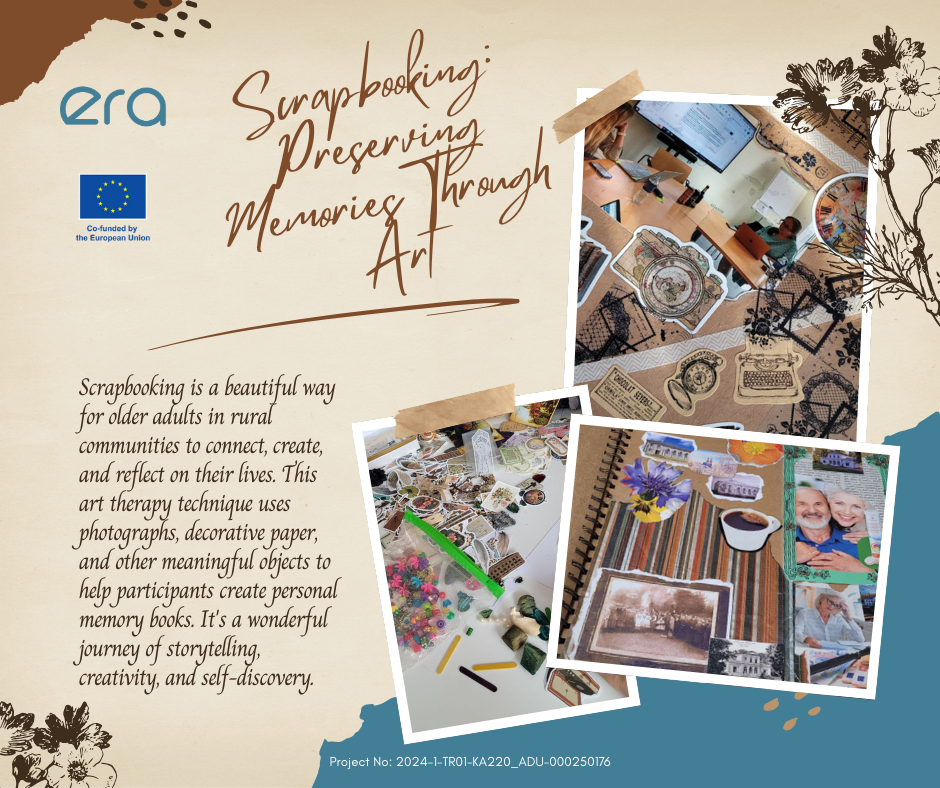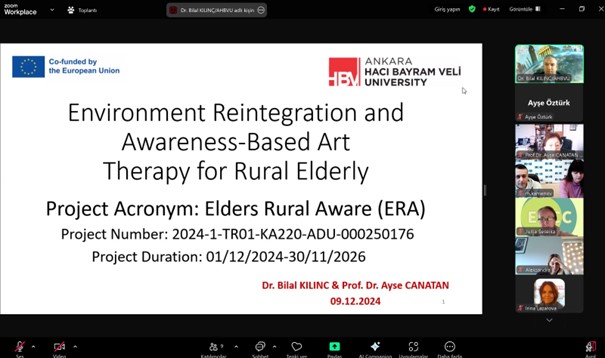
In the ERA project, we’ve reached the next milestone. Our team developed tailored art therapy modules that will be seamlessly integrated into VR technology. 🖌️🎨🕶️
Our partner from Lithuania ERCC has prepared the module “Scrapbooking: Preserving Memories Through the Art” – a beautiful way to combine creativity with memory keeping.
Stay tuned as we bring art, therapy, and technology together in transformative ways!
#ERAproject #ArtTherapy #VirtualReality #Innovation #scrapbooking
ART AS HEALING
INSIGHTS ON INTEGRATING ART THERAPY FOR THE RURAL ELDERLY IN THE ERA PROJECT
The ERA (Elders Rural Aware) Project reached an important milestone through a meticulously planned focus group meeting hosted by Ankara Hacı Bayram Veli University, the project’s coordinating institution. Held on April 22, 2025, this session brought together 13 experts, including professors, healthcare practitioners, VR engineers, legal advisors, and professionals working in elderly care.
The diverse group offered invaluable insights into the challenges and opportunities faced by elderly populations in rural areas, focusing on how art therapy could serve as a meaningful, inclusive, and therapeutic practice.
The conversation explored how rural environments, often marked by isolation and limited access to resources, can still offer unique opportunities for integrating art-based practices. This article synthesizes the key findings and insights from the focus group, highlighting how art therapy can address the emotional, psychological, and social needs of elderly individuals in rural communities, and how the ERA Project is making strides in this direction.
Download the full article at the link on the left.
The project “ERA – Environment Reintegration and Awareness-Based Art Therapy for Rural Elderly” has been launched under the Erasmus+ program.

On December 9, 2024, together with partner organizations from Bulgaria, Turkey and Lithuania, we held the first online meeting on the project “Environment Reintegration and Awareness-Based Art Therapy for Rural Elderly”, co-funded by the EU under the Erasmus+ program.
The project aims to:
- Promote active ageing: Encourage elderly individuals in rural areas to remain physically, mentally, and socially active through participation in art therapy sessions.
- Foster creativity and artistic expression: Provide elderly participants with opportunities to engage in creative activities, such as painting, drawing, and sculpting, to express themselves and explore their artistic potential.
- Enhance well-being and quality of life: Improve the mental, emotional, and social well-being of elderly individuals by offering a therapeutic outlet for self-expression and emotional processing.
- Promote environmental awareness: Utilize recycled materials and natural elements in art therapy sessions to raise awareness about environmental conservation and sustainability.
- Combat social isolation: Create a supportive and inclusive environment where elderly participants can connect with their peers, share experiences, and build meaningful relationships.
